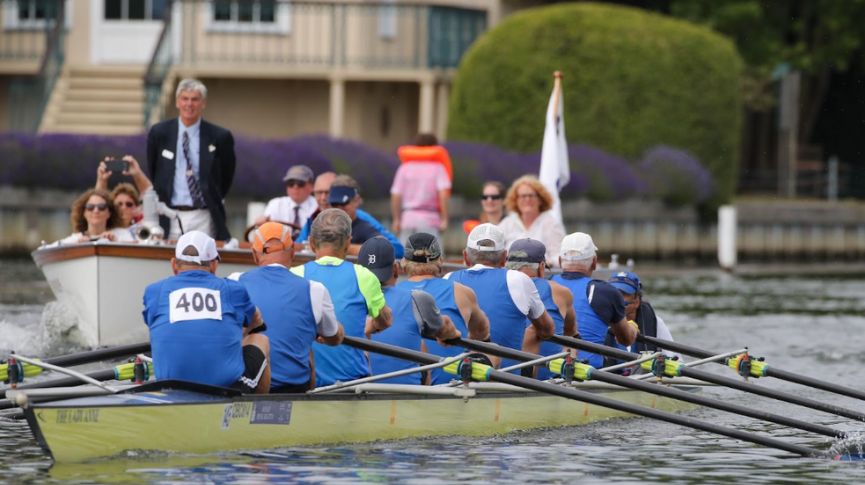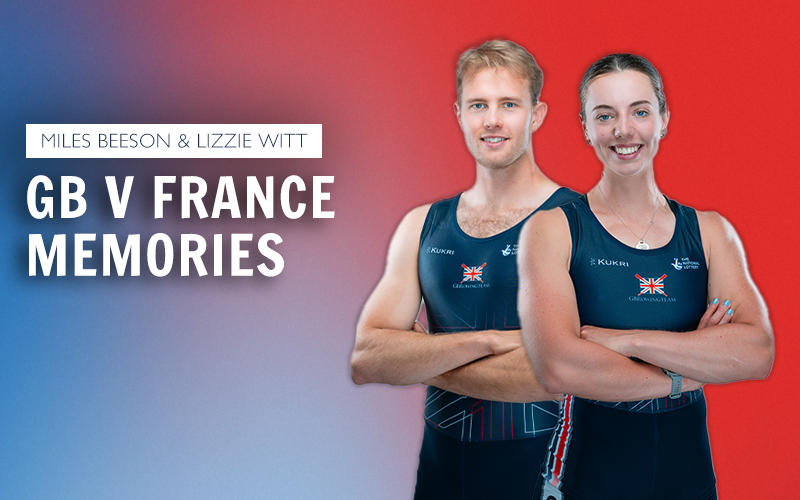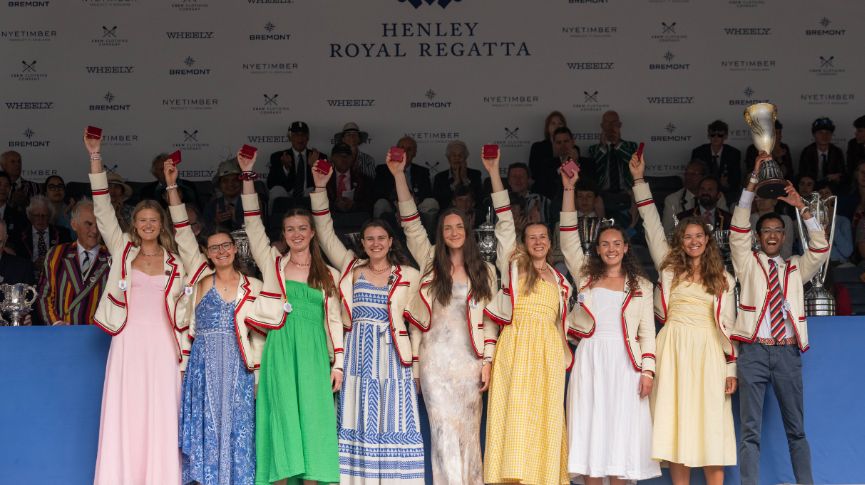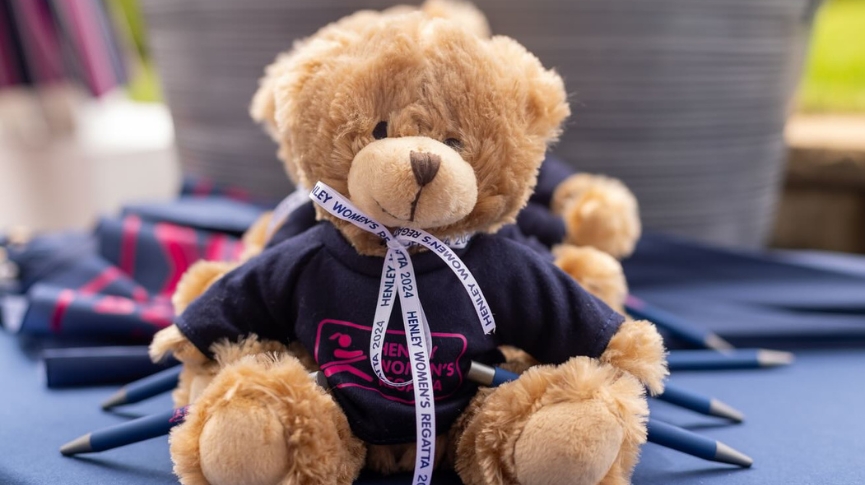Televising the Oxford and Cambridge Boat Race
When Oxford and Cambridge do battle on 24 March, the BBC will celebrate the 80th anniversary of its first televising of the event in 1938. Martin Gough finds out what it takes to cover the Cancer Research UK Boat Race in 2018
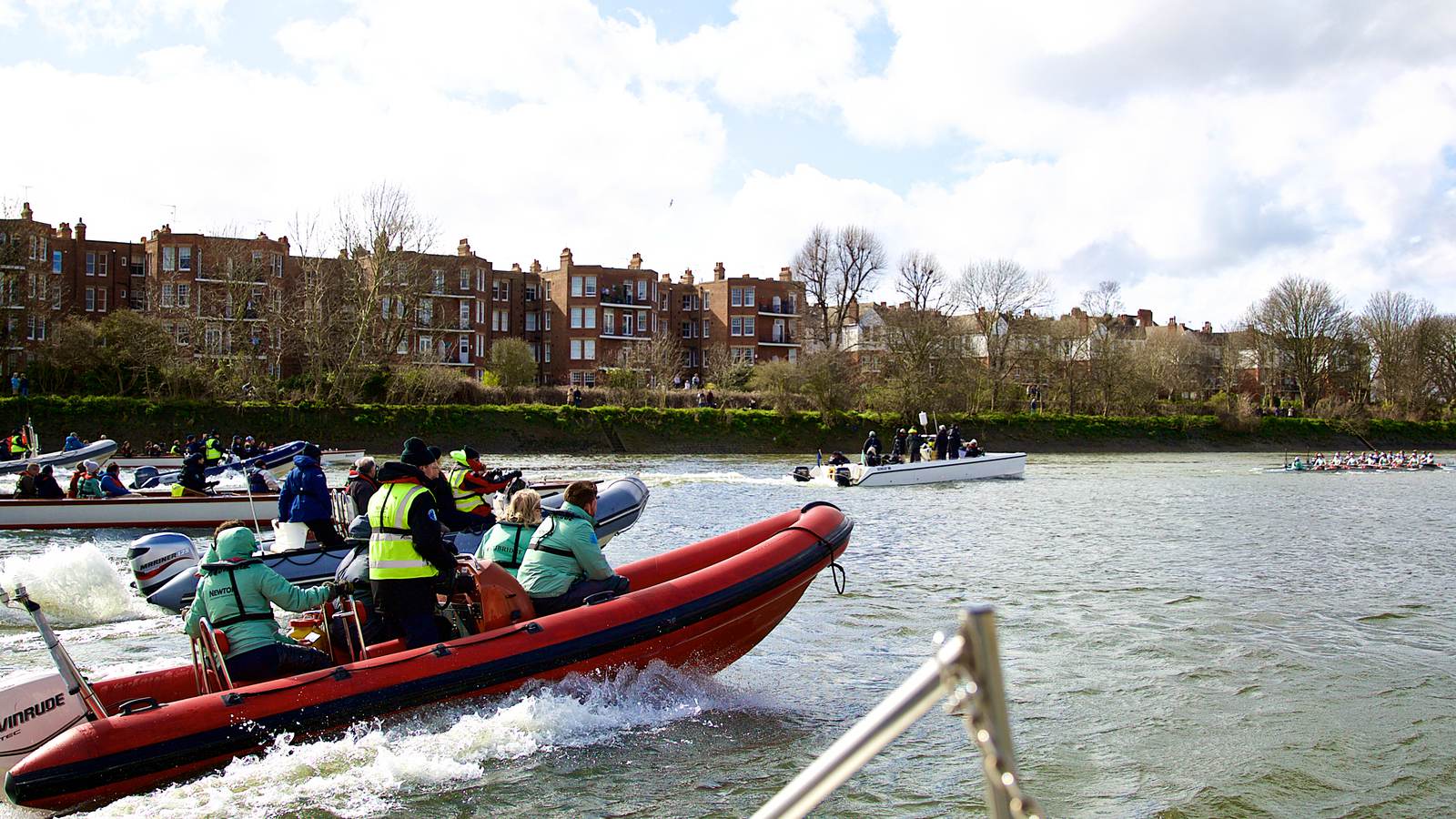
Following the 2016 Women's Boat Race (c) Naomi Baker
A crew nearly sinking, an unexploded bomb on the course, men on mopeds trying to steal TV cameras: that is just three years’ worth of excitement for the people covering the Boat Race for BBC television.
This year is the 80th anniversary of the Beeb’s first televising of the event. Much has changed since Howard Marshall commentated on the first race in 1938, with a camera at the start in Putney and another at the finish in Mortlake. There are now 30 cameras, along the course, in a helicopter, among the following flotilla and on the race boats themselves.
“The year before last, someone stole a camera overnight and we found it in a wheelbarrow in someone’s garden,” says director Pete Andrews. “Last year people on mopeds tried to steal a camera on the morning of the race so we have had to fit extra security to our kit.”
Andrews, who was director for the TV coverage of the Rio Olympic Regatta, takes the helm for his fourth Boat Race this year and is in no doubt which event is the most testing.
“It’s the most complicated outside broadcast we do, alongside the London Marathon,” he says.
“It’s very challenging just because of the length of the course – it’s more than treble the length of an Olympic lake, tidal, with corners.
“In the Olympics the boats are much closer together: the Boat Race is difficult to cover if one boat gets away. When the Cambridge women nearly sank [in 2016], all we wanted to do was watch them but we had to respect the winners too.”
It’s the most complicated outside broadcast we do, alongside the London Marathon
Last year’s planning was thrown into confusion when an unexploded World War II bomb was found on the foreshore on the day before the race. TV cameras were testing in the area at the time and managed to get some useful footage for the programme, even though Andrews had to order the camera operators away for their own safety.
With the race in doubt until the last moment, the whole running order for the show had to change to reflect the bomb scare. The man responsible for moving everything around was editor Mike Jackson, who has been working on the Boat Race since 2003.
“Pieces we had studiously researched, produced and edited – including a ‘meet the teams’ feature for the women’s race – had to be dropped so we could spend five minutes talking about the bomb,” he says.
The arrival of the Women’s Boat Race on the Tideway in 2015 added to the challenges for the technical team. The flotilla has to return to Putney between races (taking care not to wash down the reserve races) while the helicopter needs to refuel.
Yet the Boat Race still commands huge viewing figures and often beats those for Wimbledon singles finals, if Andy Murray fails to make it that far. Jackson admits the team is unsure why, in 2014, 10 million people tuned in.
“Gender-wise it’s a very good split compared to any other sport we cover,” says Jackson. “We’ve done some audience research and people like seeing London in all its glory. Also it marks the beginning of spring – it’s a real marker in the calendar.”
However, there is a drive by the BBC to make the event accessible to a younger audience. Last year there was a Facebook live event following the races with Harry Styles from One Direction. The race was also streamed on YouTube for the first time.
One of the highlights of the programme was a Celebrity Boat Race, a nail-biting if error-strewn affair featuring the likes of Rebecca Adlington and Jodie Kidd, steadied and supported by several Olympian rowers.
“It’s our job to open people’s eyes to rowing,” says Jackson. “The preconception is that it is elitist, competed in by public schoolboys. One of the pieces we will be doing this year is on Fulham Reach Boat Club, getting state schools involved in rowing.”
The BBC no longer have their own broadcast crew, out-sourcing instead to a company called CTV, whose technical producer boasts events such as the Super Bowl and the Olympics opening ceremony on his CV.
The year before last, someone stole a camera overnight and we found it in a wheelbarrow in someone’s garden
Last year the TV helicopter flew in front of the race for the first time, shooting backwards so that the flotilla and the crowds were more visible than in the past.
Cox microphones are back, with the subjects warned to watch their language but no delay as in recent years.
The team would like to use drone technology – as at Henley Royal Regatta – but the Port of London Authority have apparently so far denied permission.
What would be a successful 2018 Boat Race day for the BBC?
“Last year we were pleased with the broadcast, even though the women’s race was one-sided and the men’s race didn’t quite ignite,” says Andrews.
“It can be a difficult logistical day so if we have a ‘clean’ programme then we’re pleased, especially if things go down well with the audience. But it might only take a cox to say a rude word to make it a terrible day.”
This article first appeared in Rowing & Regatta magazine – find out how to subscribe here.


